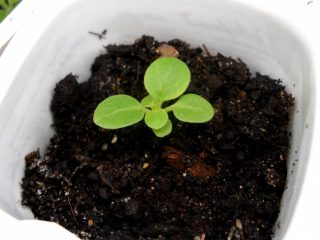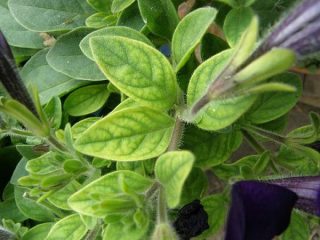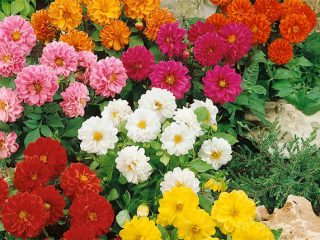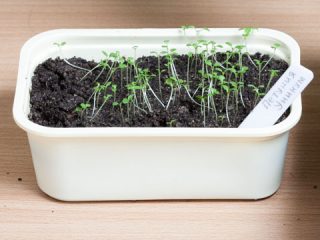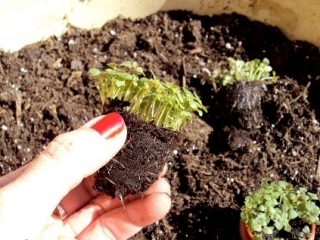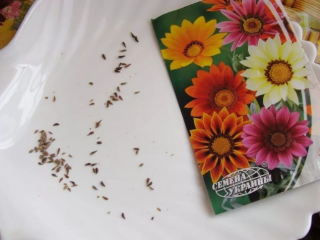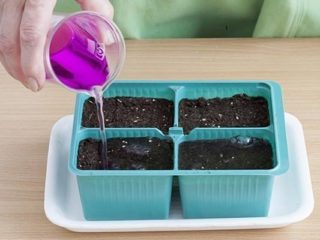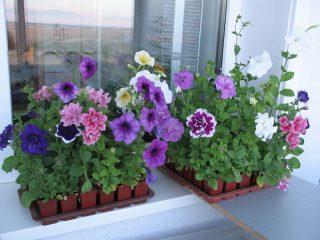Content
Many people have difficulty growing eustoma. At the same time, every gardener wants to plant a delicate plant. There may be several reasons why eustoma does not grow after germination. As a rule, they are associated with improper care - after all, the culture requires a certain temperature, lighting and moisture. And although it is easier to grow seedlings at home than in open ground, most people face problems one way or another.
How quickly does eustoma grow?
The plant grows poorly throughout its life; perhaps this is its main feature. The duration of the growing season is from 20 to 25 weeks, which is equal to 5-6 months of cultivation. Therefore, in Russia, planting is planned for late autumn or early winter in order to be in time for the growing season.
Why do eustoma seedlings grow poorly after germination?
To grow the species indoors, buy seeds. They are placed in peat cups or other containers. At the moment, there are countless varieties of eustoma, and each requires an individual approach.

For the home, it is recommended to take low-growing varieties
Unfortunately, few people succeed in propagating eustoma using cuttings or root systems. Even the process of growing seeds is difficult and lengthy, requiring specific knowledge and skills from the owner. And at the long-awaited moment, when shoots appear on the seedlings, the eustoma suddenly does not grow, and the development process stands still. There are several reasons for this.
Lack of lighting
Eustoma is a light-loving plant, but it is not able to tolerate bright sunlight. Therefore, the lighting should be diffused. Poor choice of window sill is one of the main reasons why seedlings grow poorly.
Unsuitable temperature conditions
In spring, summer and autumn, the temperature should be stable. Botanists recommend keeping eustoma in rooms with a temperature of +20-24 °C. In winter, the indicator is reduced to +12-16 °C, which is necessary for normal development.
Unsuitable soil
If eustoma does not grow well, it is likely that the soil chosen for it is not suitable. If the soil is purchased in a store, you need to look for the mark “for Saintpaulia”. In all other types of soil, there may be insufficient or, conversely, excessive amounts of nutrients. In the first case, the introduction of liquid biostimulants and fertilizing is required, in the second, mixing of soil with a depleted substrate is required.
Why eustoma does not develop - basic soil requirements:
- Moderate humidity. Seeds should not be submerged in water or in a dry environment.
- Lightness and permeability.The better these parameters, the more nutrients, air and water can penetrate to the roots of the plant.
- Acidity. The normal value is from 6.4 to 7.1.
Lack or excess of moisture
When seedlings grow poorly, the first thing you need to pay attention to is their moisture content. Watering should be moderate and carried out using a spray bottle. Also pay attention to the dryness of the upper layers of the soil.

The time for the next watering comes when the substrate begins to dry out.
Incorrect feeding
If the eustoma has emerged but is not growing, it may be due to an excess or deficiency of fertilizers. At the initial stages, you need to add a minimum of nutrients sufficient for seedlings to emerge. Afterwards the amount of fertilizing is increased.
Why does eustoma not grow after picking?
When seedlings grow poorly immediately after picking, the problem may be due to incorrect timing of picking, as well as an inappropriate choice of container for eustoma. Many gardeners believe that the plant does not require division at all, but experts do not agree with this - the eustoma needs to be pruned, and it is important to do this before the seedlings become too large.
Late pick
Incorrect timing of picking is a common reason why eustoma seedlings grow slowly. The delay leads to the growth of the root system and, as a consequence, to an increased risk of damage to the underground part.
Picking begins after the formation of 3-6 true leaves, which takes about 1.5-2 months.

Don’t be afraid that the seedlings are poorly developed - if you miss the right time, they will sprout and create a danger when digging
Small container
A small volume of soil is also the reason why eustoma does not grow well. Plants with the same lighting, watering and temperature, but with different containers, can differ significantly from each other.
After a dive, a larger capacity is required than before. The optimal volume is from 0.5 l. In this case, the eustoma root system will grow developed and will be able to receive the required amount of elements.
What to do if eustoma is growing slowly
If the eustoma has frozen and does not grow, it is necessary to determine the cause and, starting from it, select a treatment. It consists in eliminating the factor that caused poor development. Professionals recommend:
- Don't forget the importance of the drainage pad. Excess water is harmful to most plants, and eustoma is no exception.
- Provide additional illumination to poorly growing seedlings using UV lamps. In winter, additional lighting should be at least 12 hours a day.
- Monitor the watering rate. Drought and waterlogging are like two sides of the same coin - eustoma needs neither one nor the other.
- Avoid temperature changes. The owner must ensure that the thermometer scale does not fall below +20 °C.
- Water the sprouts with fungicide after picking. This will serve as a preventative measure against fungi and other diseases.
Speaking of eustoma planted in open ground, it can grow poorly due to pests and diseases. At home, the risk is minimal, but in the garden you have to worry once again. Eustoma suffers from the following diseases:
- Root rot. It occurs due to waterlogging and affects the underground part of the crop, which blocks access to nutrients.
If left untreated, the disease leads to the death of the plant.
- Gray rot. It is typical only for outdoor flowers, but can be brought into an apartment along with the soil.
When infected, gray spots form on the leaves - this is a fungus that feeds on the sap of the shoots
Based on some symptoms, you can determine what is causing the poor growth of eustoma:
- Intense wilting - moisture deficiency, disease damage.
- Lack of buds - poor lighting;
- The appearance of yellow leaves means fading in the sun, drafts.
The plant reaches the peak of decorativeness thanks to its lush flowers, which can have different shapes and colors. You have to pay for the opportunity to enjoy this process with daily care. There is no need to be discouraged if the eustoma is not growing well. It may be possible to grow the seedlings a second time. In any case, the florist gains valuable experience.
How to feed eustoma seedlings if they grow poorly
If the eustoma has frozen and does not grow, most likely it needs feeding. The question is what exactly to feed. Most people recommend Fundazol: mix it with water and pour it over.

Also, Fundazol solution is a preventative against diseases, it has a comprehensive restorative effect
You can also use biological stimulants - Epin or Zircon.
Conclusion
Eustoma does not grow after germination due to poor lighting, uncontrolled application of fertilizers, irregular or excessive watering, and improper soil composition. If the plant does not develop well after picking, the timing was probably violated or a small pot was used.


